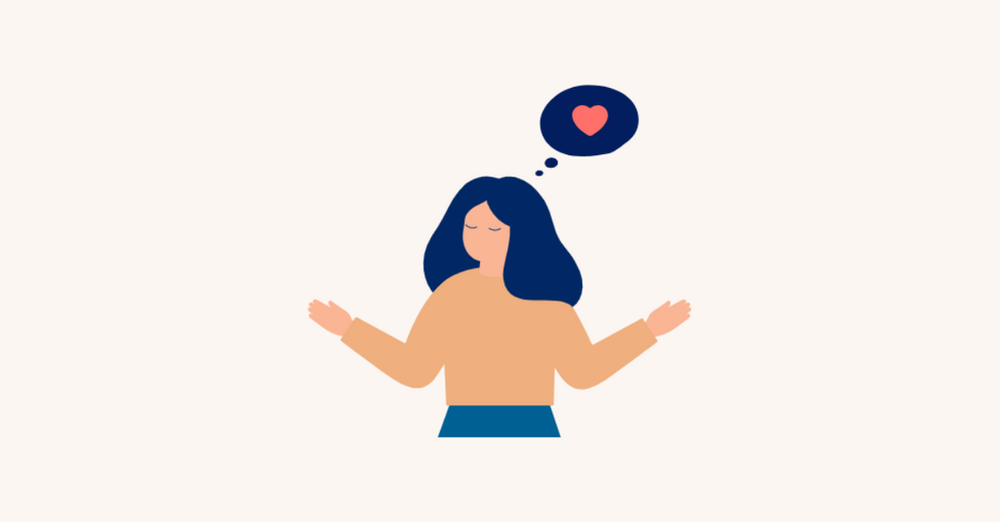How often do you do something with 100% focus? For most people this is a hard question to answer. During the day there are a thousand things distracting us. Whether it’s a colleague, a roommate or the inbox of our various social media accounts. The amount of distractions, or sometimes called stimuli, we have to deal with on a daily basis makes our brain work non-stop.
Therefore, you may need some rest. Often we tend to look for rest in the wrong way. If you’re tired after a day of work, you jump on the couch with your phone and switch on the TV. Even though that might feel relaxing, often it’s not, according to Zoila. “It can be intensive to watch a series or a movie, these are again stimuli that your brain has to process.
A good remedy against all those stimuli, is to really do nothing for a while. That can be difficult. “Some people are afraid of doing nothing, because they may be confronted with certain thoughts that cross their mind. This makes being ‘busy’ a good distraction”.
Over- or under stimulated
If you don’t manage to process all the stimuli you receive during the day, you may experience it in two different states; over-stimulation or under-stimulation. If you are over-stimulated, it often manifests itself to the people around you. For example, you are easily irritated or frustrated and you can hardly stop moving. People which stand close to you will start to notice this. The other experience is called under-stimulated, it makes you feel tired, emotional or flat, and you don’t feel like talking.
“It’s good to reflect your feeling, how do you really feel? That’s something we can be more alert about, because in the end your feelings are a way in which your body tries to tell you something,” Zoila says. We are often programmed to just keep going, and possibly suppress some feelings a little. “With a little exercise you can keep track of how you feel and what’s going on in your body. You check in to see how things are going.”
Exercise for your brain
The term mindfulness is something we’ve been hearing a lot the past few years. With as a result, making many skeptical. “However mindfulness, we also call it attention training, can be a nice intermediate step between doing nothing at all and having a complete (irritations) free moment,” Zoila explains. “It’s an exercise for your brain, a moment of relaxation. Your brain is so used to search for distractions, being busy with other things and focus on new things. That’s why ‘attention training’ in the beginning is quite a pain in the ass”.
For example, if you start with an exercise that requires you to focus on your breath for five minutes, you will notice that it is quite difficult to turn off your thoughts and not to think about your shopping list. “But once you get a little better at it, and master the exercise, you will feel the effect.”
Grips and techniques
“There are all kinds of exercises and techniques to apply. You should look for one that you like and suits best. There are breathing exercises, but also exercises to shift your attention.
You can work on this topic with an OpenUp psychologist, at least in the beginning. Besides the fact that an external person tries to keep you motivated, you will also get some help on how to do the exercises. “In a conversation with a psychologist you can also immediately think about what you like and don’t like, and agree at what time of the day you can best do the exercise. Sometimes it can be difficult to keep up with something new by yourself”. In the long run you will be able to work on the easier exercises yourself.
Zoila has two tips for people who feels trouble finding moments to rest.
Tip 1: “A very easy way to get a moment of rest is to use your senses. Without your phone, of course. Do you have a break at work or is it lunchtime at home? Then try to focus on your lunch, look around and see what’s going on around you. What do you smell, what do you taste, what do you experience? In this way you briefly shift your focus.
Tip 2: Focus on your breathing. “Try to find out where your breathing is. In case of stress it is often a bit higher, in the chest. That’s not a bad thing, but often a sign that you are restless”. Therefore, take a moment to focus on your breathing for a moment, and if necessary, try to get it down a bit by breathing in and out quietly. “It doesn’t matter if that doesn’t work out, it’s a good start to try it.





